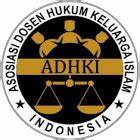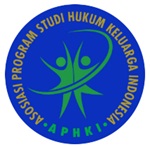Metode Talfik Di Sudan Sebagai Wujud Perkembangan Hukum Keluarga Islam
DOI:
https://doi.org/10.29240/berasan.v2i2.9165Keywords:
Law, Family, Sudan, Modern MuslimAbstract
The reform of Islamic family law should involve a process of consultation, dialogue, and participation involving scholars, Islamic jurists, religious leaders, and the Muslim community at large. The aim is to strike a balance between maintaining the tenets of the Islamic religion and meeting the needs and aspirations of modern Muslim societies. In this study, the highlight is the renewal of Islamic family law in Sudan. The method used in this study is a qualitative approach and is a type of library research. Library research method, also known as literature research or literature research, is a research approach that involves the use of library and library resources as the main source of information. This method relies on the analysis of previously published relevant literature, such as books, journals, articles, reports, and other documents. The birth of legal products in Sudan, full of dynamics and colors. Starting from the formalistic Islamization of law carried out by Numeiri, until the end, Sudan is now divided into two states. In the context of Islamic family law in Sudan and Indonesia, there are prominent and almost identical differences. A very prominent difference is seen in terms of legislation. In Sudan, all forms of statutory decisions are given full rights to Judges. In Sudan, judges are acquitted of their legal rulings. Sudan's talfic method of formalizing the law became commonplace and not foreign or taboo.
Downloads
References
Abubakar, Fatum. “PEMBARUAN HUKUM KELUARGA: WASIAT UNTUK AHLI WARIS (Studi Komparatif Tunisia, Syria, Mesir Dan Indonesia).†HUNAFA: Jurnal Studia Islamika 8, no. 2 (December 15, 2011): 237–67. https://doi.org/10.24239/jsi.v8i2.364.237-267.
“Kontribusi Turki Dan Mesir Terhadap Sejarah Pembaruan Hukum Keluarga Islam Di Indonesia | Al-Manhaj: Journal of Indonesian Islamic Family Law,†January 4, 2023. http://ejournal.iainmadura.ac.id/index.php/almanhaj/article/view/3115.
Podungge, Mohamad Salman, Panji Nugraha Ruhiat, and Si’ah Khosyiah. “HUKUM PERKAWINAN & KEWARISAN DALAM TATA HUKUM MESIR DAN SUDAN.†Al-Ahwal Al-Syakhsiyyah: Jurnal Hukum Keluarga Dan Peradilan Islam 3, no. 1 (March 31, 2022): 19–32. https://doi.org/10.15575/as.v3i1.17476.
Saiin, Asrizal, Hasbi Umar, and Hermanto Harun. “PEMBAHARUAN HUKUM ISLAM DI MESIR DAN SUDAN: STUDI KOMPARASI.†Jurnal Integrasi Ilmu Syariah (Jisrah) 2, no. 3 (December 28, 2021): 1–13. https://doi.org/10.31958/jisrah.v2i3.4954.
Zaelani, Qodir Zaelani Qodir. “Pembaruan Hukum Keluarga: Kajian atas Sudan – Indonesia.†Al-’Adalah 10, no. 1 (2012): 331–42. https://doi.org/10.24042/adalah.v10i1.280.
Anderson, J. N. D. (1959). Islamic Law in The World. New York University Press.
Coulson, N. J. (2001). A History of Islamic Law. Edinburgh University Press.
Hamid, A. (2010). Pemikiran Modern Dalam Islam. Pustaka Setia.
Hoktaviandri. (2019). Pendidikan Islam di Sudan. Al-Kahfi: Jurnal Pendidikan Agama Islam.
Hopwood, D. (1985). Egypt: Politics and Society 1945-1984. Billing&Sons.
Hotman, S. (1991). Egypt From Independence to Revolution 1919-1952. Syracuse University
Press.
Lapidus, I. M. (1999). Sejarah Sosial Umat Islam. PT. Raja Grafindo.
Mahmood, T. (1972). Family law Reform in the Muslim World. N. M. Tripathi, PVT. LTD.
Marsot, A. L. S. al-. (1990). A Short History of Modern Egypt. Cambridge University Press.
Masyafa’ah, N. L. (2012). Penerapan Syariat Islam di Mesir. Al-Daulah: Jurnal Hukum Dan
Perundangan Islam, 2(2).
Naim, A. A. (1994). Dekontruksi Syariah, Wacana Kebebasan Sipil, Hak Asasi Manusia dan
Hubungan Internasional. Lkis.
Nasution, H. (2003). Pembaharuan Dalam Islam Sejarah Pemikiran dan Gerakan. Bulan
Bintang.
Nasution, K. (2009). Hukum Perdata (Keluarga) Islam Indonesia dan Perbandingan Hukum
Perkawinan di Dunia Muslim. Tazzafa dan ACAdeMIA.
Nasution, K. (2010). Pengantar dan Pemikiran Hukum Keluarga (Perdata) Islam Indonesia.
Tazzafa dan ACAdeMIA.
Rahiem, H. (2010). Perkembangan Ilmu Fiqih di Dunia Islam. Bumi Aksara.
Safwat, S. (1988). Islamic Law in The Sudan. In Islamic Law: Social and Historical
Contects. Routledge.
Saiin, A., Jaelani, A. K., Hayat, M. J., Warman, A. B., & April, M. (2021, October). Islamic
Law in Indonesia: Baḥtsul MasÄil Ijtihad and the Production of Knowledge. In International Conference on Environmental and Energy Policy (ICEEP 2021) (pp. 26-30). Atlantis Press.
Salikin, A. J. (2004). Reformasi Syariah dan HAM dalam Islam: Bacaan Kritis Terhadap Pemikiran An-Naim. Gama Media. Satori, D., & Komariah, A. (2009). Metodologi Penelitian Kualitatif. Alfabeta.
Sudjana, N., & Kusuma, A. (2005). Proposal Penelitian di Perguruan Tinggi. Sinar Baru
Aldasindo.
Summa, M. A. (2005). Hukum Keluarga Islam di Dunia Muslim. Raja Grafindo Persada.
Tharazi, A. M. A. (1985). Intisyar al-Islam fi al-‘Alam fi al-Sittah wa Arba’una, Daulah
‘Aisyiah wa Afriqoh. Alam al-Muarrafah.
Thohir, A. (2011). Studi Kawasan Dunia Islam: Perspektif Etnolinguistik dan Geopolitik.
Rajawali Pres.
Wahid, M., & Rumadi. (2010). Fiqh Madzhab Negara: Kritik atas Politik Hukum Islam di
Indonesia. Pustaka Setia.
Warman, A. B. (2019). Dinamika Perkembangan Hukum Keluarga Islam di Indonesia.
IJTIHAD, 35(2).
Zaelani, Q. (2012). Pembaharuan Hukum Keluarga: Kajian Atas Sudan-Indonesia. Al-
‘Adalah, X(3).
Zayyadi, A. (2014). Reformasi Hukum di Turki dan Mesir: Tinjauan Historis-Sosiologis. Al-
Mazahib, 2(1).
Downloads
Published
Issue
Section
Citation Check
License
Authors who publish with Berasan: Journal of Islamic Civil Law agree to the following terms:
- Authors retain copyright and grant the journal right of first publication with the work simultaneously licensed under a Creative Commons Attribution-NonCommercial-ShareAlike 4.0 International License (CC BY-NC-SA 4.0) that allows others to share the work with an acknowledgment of the work's authorship and initial publication in this journal.
- Authors are able to enter into separate, additional contractual arrangements for the non-exclusive distribution of the journal's published version of the work (e.g., post it to an institutional repository or publish it in a book), with an acknowledgment of its initial publication in this journal.
- Authors are permitted and encouraged to post their work online (e.g., in institutional repositories or on their website) prior to and during the submission process, as it can lead to productive exchanges, as well as earlier and greater citation of published work (See The Effect of Open Access).









